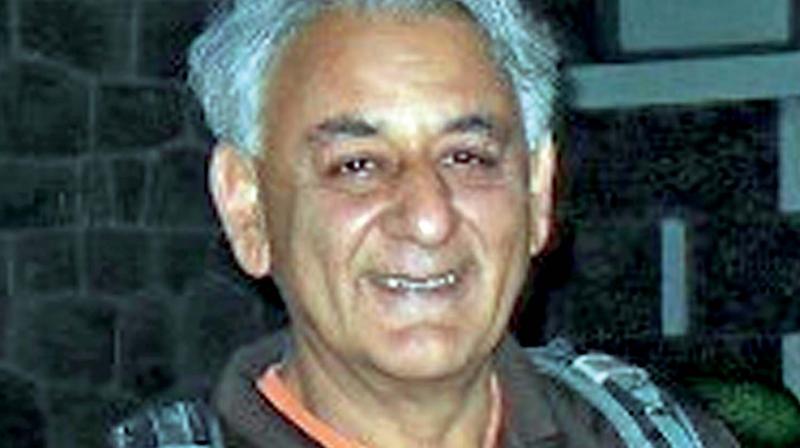Tap floodplains to resolve Tamil Nadu water crisis: Expert
The Delhi Jal Board is already harvesting water from Yamuna floodplains.

Chennai: As the summer sets in, many cities in the state are staring at acute water crisis this year due to the failure of the northeast monsoon. Professor Vikram Soni, an eminent physicist and Professor Emeritus at Jawaharlal Nehru University, has come up with an innovative idea to harvest the water from floodplains.
The Delhi Jal Board is already harvesting water from Yamuna floodplains. “Under this non-invasive method, we can source water for over three million people,” Professor Vikram Soni told Deccan Chronicle in an interview. “Floodplains can meet the water demands of many cities in Tamil Nadu including Vellore, Tiruchy and Madurai,” he said.
The excerpts:-
Q How did you come up with the novel idea of harvesting water from flood plains?
It all began when we wanted to save the protected natural resource of the Yamuna floodplains from the encroachment of the Commonwealth Games village. Since we knew that the noble ideal of conservation does not work in these times of fast and thoughtless development we decided to scientifically find a use for them without damaging this amazing water resource. We did a small experiment to see how much water, sand can hold and found that the floodplains are over 50 meters deep and over 5 km wide and 40% of this volume is water.
This was the beginning for creative “Conserve and Use” scheme for living evolutionary resources like the floodplains, created by evolution in millions of years. We found that since naturally store water and get naturally recharged by the monsoon they would give huge economic benefits.
Q Can you explain how this method is environmentally sustainable?
We have huge natural storage for water in the deep (100m) and wide (over 5 km) river floodplains along the river. Next, we found out how much water is naturally recharged every year by monsoon rain and floods. And we found the answer - we could non-invasively and perennially source local water for over 3 million people in the city from the floodplains.
Q How much water can be extracted from floodplains? Can it serve an entire city during summer?
The Delhi Jal Board is currently harvesting 24 million gallons per day from Yamuna floodplains in Delhi. The recharge depends on rainfall and the area of river floodplains which varies from place to place. The Mahanadi basin in Bhubaneshwar- Cuttack can yield perennial water for even 9 million people!
Q How many cities in Tamil Nadu could use this method to meet their water demands?
There are many cities where the river has floodplains, for example, Vellore Tiruchy, Thanjavur, Madurai, and much more in south Tamil Nadu. Anywhere there is a river in the plains it will have floodplains which will naturally store monsoon water. But we cannot use this method in Chennai as there are no floodplains left in the City.
The rampant sand mining has damaged the river beds and floodpains in the state.
Q Some rivers are running dry for several years now. Would the floodplains of these rivers have water?
Sand mining is a direct destruction of the floodplains. The floodplains of the peninsular rivers in South India are not so deep — about 30 meters of sand. If you take out 10 meters by sand mining the floodplains are badly hit.
The sandy floodplains reside above the river and after the monsoon water gradually flows from the floodplain to the river and not the other way thus retaining the quality (unpolluted) water in the floodplains.
If we remove even 3 meters of sand from the floodplains since our rivers are so polluted all the polluted water will enter the floodplain aquifer. Act now and stop sand mining and we can still save a lot of water resource.
Q What will happen to the floodplains if they are overexploited? Is there any mechanism in place to prevent it?
Yes, floodplains can be destroyed by overexploitation. This has happened in Noida and Greater Noida. Once polluted, the floodplains are gone forever. So, this needs a very stringent notification by the Supreme Court of India and a parliamentary legislation that absolutely prohibits their exploitation beyond a very safe limit. Such a limit has been worked out for Delhi Yamuna Floodplains. It will have to be promulgated for any floodpl-ain that is used for water supply — otherwise, we can lose this evolutionary resource. Any violation will invite very strong penalty, even life imprisonment.

